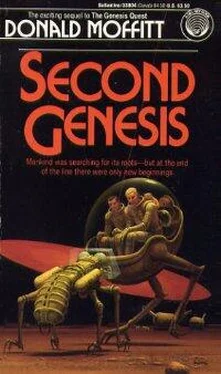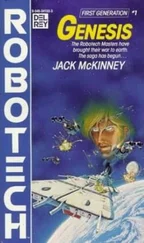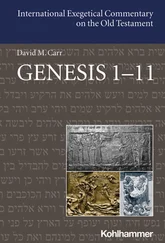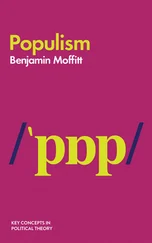“We believe that we can fly through the Sol system without danger and make a survey from space. With our engine off, we’re unlikely to be spotted. And even if we were, we ought to be safe from being boarded unless we went into the close planetary orbit, as we did here. I doubt that they would be able to match velocities with us on a hyperbolic orbit through the system.” He paused. “And if they tried—why, we’d see them coming from a long way off, and we’d turn on our engine and outrun them.”
A flurry of voices went through the audience as people turned to their neighbors to comment. Jun Davd let the commotion run on for a bit, then raised a flat palm again.
“Of course, after the terrible events that we’re all familiar with, it would be perfectly understandable if we voted not to take that chance. On that subject, perhaps we ought to hear from a member of the patrol, who I believe has something to tell us.”
Edard got up. He evidently had just come off duty and still had his treeguard armband on. His voice was tense as he spoke.
“We just found two more and killed them. No casualties this time. We have a new weapon that doesn’t let them get close to us—provided we outnumber them by a fair margin, of course. We believe that was the last of them. Except…”
He looked troubled. He pushed back a mop of dark hair and continued. “Except that one of them evidently bored holes in the cambium of a passage and laid eggs—several tens of them. We came upon one of the hatchlings. They’re about as long as your thumb and they look exactly like the adults, except that perhaps they’re stubbier. And they bite.”
His holo held up a bandaged hand.
“We destroyed all the eggs we could find—and we had some help. When our Cuddlies saw what we were doing, they took a hand, too. They’re good at getting into small places … and they’re wild about eggs! We saw them chase down hatchlings, as well. Let me tell you that Cuddlies can bite, too.”
A subdued sound of nervous laughter went through the chamber.
Edard smiled in response. “At the moment, there are several hundred Cuddlies prowling through the passageways, looking for eggs and hatchlings. They’re very imitative beasts, as we all know. Pickings were slim after the first few hours—but we’ve all seen how persistent a Cuddly can be. I don’t think that after a few Tendays we’ll have to worry about nymphs being aboard the tree.” He sobered. “But of course, we intend to keep the treeguard patrols going indefinitely.” His holo gave a grin. “And on that subject, we’d be pleased to have more volunteers.”
He sat down next to Bram and Mim. Jao leaned across and said, “Nice going.”
Jun Davd was smiling to himself. Bram said, “Why are you so pleased with yourself, you old reprobate?” Bram asked. You undermined your own case when you let Edard remind everybody how dangerous the nymphs are.”
“We’ll see,” Jun Davd said.
The ushers moved swiftly down the aisles. A ballot box was shoved at Bram on its long pole, and he pushed the yes button. The box slid past him to pause at Mim and Edard. Jao tried to vote twice and looked unabashed when the usher caught him at it and said, “None of that, brother.”
The voting was over in twenty minutes. Yes and no votes went much faster than multiple-choice votes, as when there was a slate of candidates. The ushers brought their boxes to the clerk, who plugged them one at a time into a tabulator.
The tally figures floated in holographic projection, huge, glowing, and changing so rapidly that the final digits were a blur. But the trend was clear.
“It’s going to be almost unanimous,” Jao said. “I don’t believe it.”
The last few figures clicked into place. The crowd waited a moment to take it in, then a great cheer went up.
“That’s it,” Jun Davd said. “We’re going to Sol.”
Earth hung before them, a soiled brown ball swirled around with dingy clouds. Its moon had an atmosphere, too, if that yellowish soup could be called air.
“What have they done to it?” someone whispered.
Brown oceans, brown air—it was a planet drowned in swill. But incredibly, there was life there. The planet was thick with life, in fact, to judge by all the microwave radiation, the chemical pollutants revealed by infrared spectra, the hydrocarbons that choked the clouds, the orbital junk.
“There are simply too many of them,” Jun Davd said sadly. “A population of half a trillion if we’ve estimated their demographics correctly from that … city.”
Radar imaging had exposed a spongelike warren of habitation that stretched from end to end of the single sprawling continent—an irregular heap of stacked cubes that staggered miles high in places, reaching to where the filthy air thinned to the merely fetid.
The radar imaging had sparked a lot of controversy. There was a strong feeling that the close-up look at Earth should be limited to passive observation—radio eavesdropping, infrared, and the like. But Yggdrasil was a naked-eye object by now, and further caution seemed pointless.
At any rate, the radar didn’t seem to have alerted the inhabitants of the Earth-Moon system. Perhaps their own microwave background was simply too noisy. When there had been no sign that the dragonfly civilization was paying attention to them, the treeload of humans had voted to risk putting Yggdrasil into a remote orbit a hundred thousand miles out, with the fusion engine kept warmed up.
“I thought somehow it would be … lovely,” Mim said, turning a disappointed face to Bram. “Like the Father World seen from space.”
Alis Tonia Atli, now a historian, was among the people who had come crowding into the observatory. “Is it possible that they inherited this? Evolved for it?” the thin woman suggested. “Perhaps it was Original Man who poisoned Terra, millions of years ago. We know he had a population in the billions.”
“No, it wasn’t Original Man that did this,” said a thick-featured man with blue-black ringlets. It was Dal, the dramatist, inspired by the diskworld finds to return to the writing of his verse plays. “Earth didn’t look like this when he was still around. I remember the words of one of the lunar poets of the twenty-eighth century … Taine, I think.”
He struck a professional pose and declaimed:
Oh, fair blue world, marbled in glory,
Teach us beauty as you rise
Above our bleak horizon…
He was interrupted by Hogard, the librarian. “I don’t think that’s Earth at all. I know it has a large moon, but that one big land mass with its three lobes doesn’t fit any of the maps I’ve seen.”
“Continental drift,” Enry said stolidly. “Seventy-four million years of it. They came together in one supercontinent.”
“The rest of the system doesn’t fit, either,” Hogard said stubbornly. “Where are the gas giants? The solar system was supposed to have four of them, including one with spectacular rings. Instead, those orbits are occupied with a whole collection of terrestroid planets, all of them crawling with dragonflies.”
Jun Davd stepped in. “We know that the moon was terraformed with carbon dioxide from Venus and hydrogen from Jupiter. Carbon dioxide broken down to liberate oxygen, hydrogen reacting with some of the oxygen to make water. We can assume that the process went on. Carbon dioxide and hydrogen are very useful commodities for an industrial society expanding into space. Jupiter and Venus were gradually stripped. Both became habitable. Venus, with the crushing load of its hothouse atmosphere removed and a modest helping of hydrogen brought in to react with liberated oxygen to make oceans—and perhaps even an infusion of cometary ice. And Jupiter—”
Читать дальше












